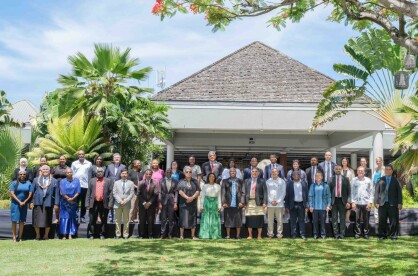In recent weeks, a renewed sense of
apprehension has swept through the Maldives, following the resurgence of
filaria cases in the country. Despite having successfully eradicated the
disease in 2016, the Maldives now faces a resurgence, with 25 reported cases of
filaria emerging in Kulhudhuhfushi. The re-emergence of this ailment has
reignited concerns and prompted a closer examination of public health measures
to address and contain the situation.
While no cases of the disease have been
detected among locals thus far, a concerning trend has emerged with a surge in
filaria cases among expatriate workers, reaching a total of 25 in just the past
few weeks. This has triggered widespread public concern, prompting questions
about how a disease, successfully eradicated in the country since 2016, could
resurface this year.
The underlying cause of this unexpected
resurgence stems from a critical oversight in the screening process. An
official from the Health Ministry of the Maldives recently disclosed that,
surprisingly, filaria was not included in the list of diseases screened during
the work-permit screening process. This revelation has prompted the Health
Ministry to reconsider and revise the screening protocol, contemplating the
inclusion of filaria and potentially expanding the list of diseases that work
permit holders are required to undergo screening for before entering the
Maldives.
Although the initial cases of filaria were
confined to Kulhudhuffushi in the past few weeks, the heightened level of
public concern has been further exacerbated by the detection of a filaria case
in Hulhumale’ City. This additional incident has underscored the need for a
comprehensive and meticulous review of the screening procedures to address
potential gaps and ensure the robustness of public health measures across
various regions of the Maldives.






